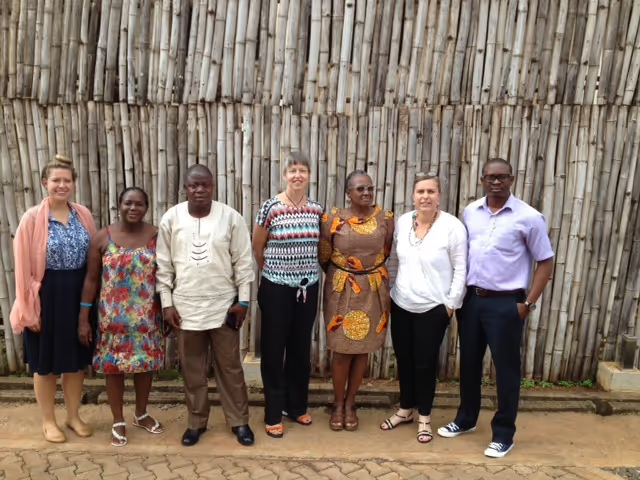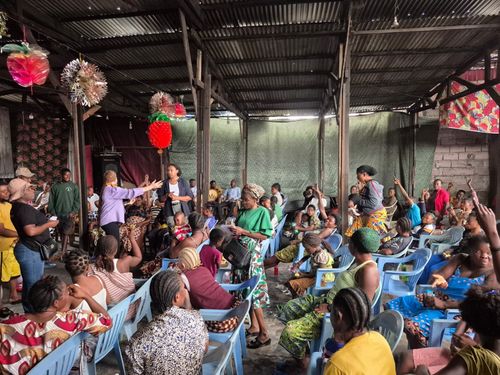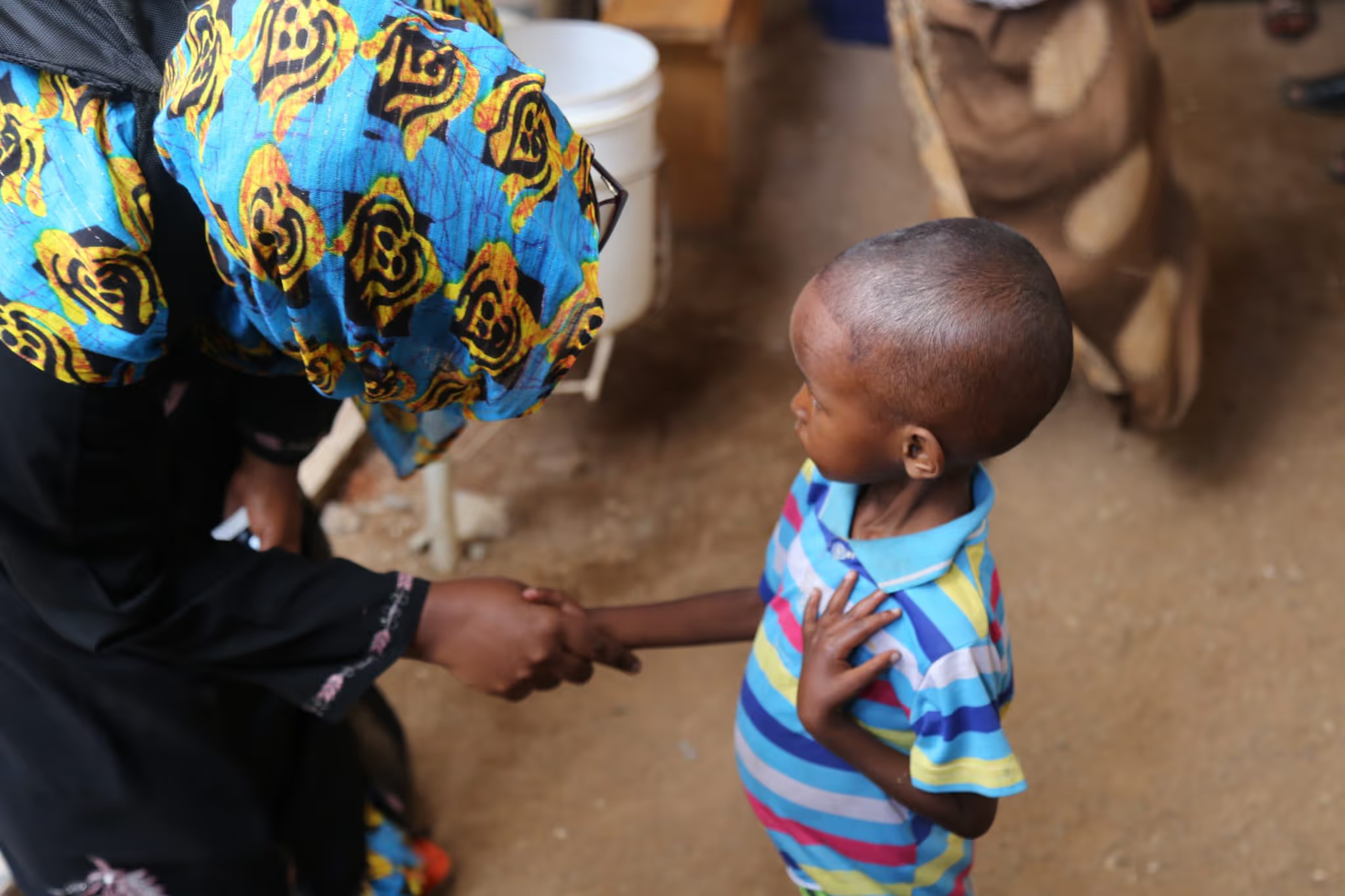Strengthening Evidence for the Scaling of Psychological First Aid in Humanitarian Settings

Project overview
This study aimed to evaluate the WHO recommended Psychological First Aid (PFA) approach to understand how PFA training influenced the knowledge and practice of non-specialist psychosocial support providers.
Project solution
This project offers [specific solution or intervention] to tackle [challenge]. By implementing [strategies, tools, or innovations], the project aims to achieve [desired outcomes]. The approach is designed to [specific actions or methods] to bring about meaningful change in [community, region, or issue area].
Expected outcomes
This project aims to achieve [specific outcomes], such as [measurable results, improvements, or changes]. The expected impact includes [benefits to the target community, advancements in research or innovation, or long-term effects]. By the end of the project, we anticipate [specific changes or milestones] that will contribute to [broader goals or objectives].
Principal Investigator: Joop de Jong, Universiteit Amsterdam
Purpose:
The research aimed to systematically evaluate Psychological First Aid (PFA), a WHO-recommended approach to providing humane, supportive and practical help to people who have suffered serious crisis events. It sought to investigate whether and how PFA strengthens the provision of effective mental health and psychosocial support to acutely distressed beneficiaries in humanitarian crises. The study sought to retrospectively investigate the widespread deployment of PFA approaches in the Ebola outbreaks in West Africa and, prospectively, its planned roll-out across the health sectors in Sierra Leone. The focus was on those trained to use the PFA approach, and how this training influenced their knowledge and practice, rather than on the effects of the PFA approach on those who received support.
The study team aimed to develop a framework for collating evidence of the impact of PFA training on those who offered support to people affected by crises. Findings were expected to establish a sound evidence-base to inform subsequent capacity building in the PFA approach as a means of humanitarian emergency preparedness and response. The study sought to identify key elements required to maximise successful training, scaling and messaging of PFA, with a particular focus on the enhanced capacities of front-line responders to deliver appropriate support to beneficiaries.
Outcomes:
The first phase of the study conducted qualitative interviews with a sample of those trained as PFA trainers or who had participated in PFA training during the Ebola outbreak in Sierra Leone and Liberia. This was followed by a second phase prospective Randomised Controlled Trial in Sierra Leone, which investigated the effects of PFA training on healthcare providers’ knowledge, attitude and skills in relation to providing support to individuals in distress. A survey was conducted at three time periods with 400 healthcare providers in five districts across Sierra Leone, half of whom were trained in PFA after the baseline survey, and the other half of whom were trained after the research had ended. The survey was designed to assess retention of PFA knowledge, ability to apply this knowledge in hypothetical scenarios, professional attitude, confidence in administering psychosocial support following adversities and whether providers themselves had an improved professional quality of life.
Key Findings:
- Those trained in PFA during the Ebola outbreak reported very positive personal changes (e.g. learning to understand reactions of others and manage one’s own emotions; improved use of self-care strategies; improved relationships with friends, family and colleagues as they began to use the skills). However, their descriptions of what PFA is and how they actually used it often had little in common with the standard PFA model.
- The PFA approach was most often used in the way expected when the case being dealt with was a crisis (e.g. someone directly affected by Ebola), and the provider had some previous experience of dealing with people in distress (e.g. social workers).
- The prospective study showed that PFA training increases understanding of helpful ways to respond to someone who is distressed. The health care workers who participated in the PFA training showed an increase in knowledge of how to respond to a person in distress and gave more appropriate responses to hypothetical scenarios, compared to those who did not participate. These changes were maintained up to six months after the training.
- There were no significant differences found as a result of PFA training on professional attitude, confidence or professional quality of life.
Key Outputs:
- One article published in Global Mental Health. This paper focuses on recommendations for the adaptation and improved delivery of PFA training
- A second paper, focusing on the findings from the prospective randomised controlled trial, will be submitted to a peer-reviewed journal.
- Findings were shared in-person with research participants and key stakeholders (including District Medical Officers) in six districts and at the Ministry of Health in Sierra Leone in April 2017.
- Findings were presented at International Society for Traumatic Stress Studies conference (2018).
- PFA trainings delivered within the ACT Alliance have been redesigned based partly on these findings (as well as the ACT Alliance’s own evaluation), and the findings have also influenced PFA trainings currently being planned by the Jesuit Refugee Service.
Next Steps:
The research findings are expected to contribute towards adaptations to how PFA training will be provided in future by War Trauma Foundation and other PFA delivery organisations.
Research snapshot
Get an overview of this research study and its findings in this research snapshot.
[.cta_link]View[.cta_link]
Project delivery & updates
Stay up to date with the latest developments from this project. Here, you will find details on what has been delivered, resources created, and regular updates as the project progresses. Access key documents, reports, and other materials to see how the project is making an impact.







